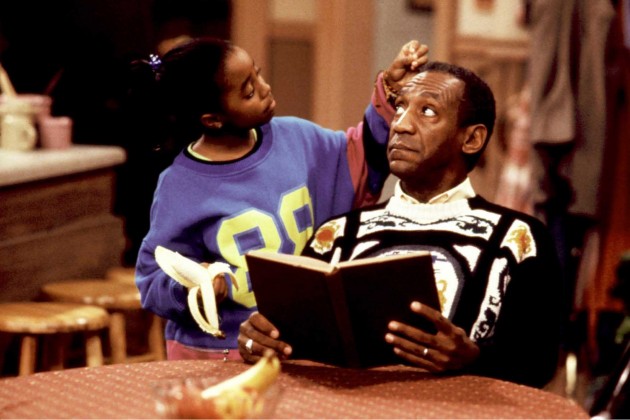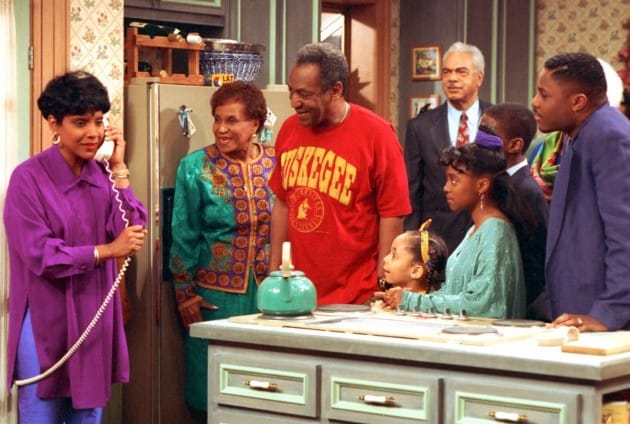
Throughout television history, there have been countless good shows and many great shows, but only a select few can really call themselves important. These are series that were not only well-written, well-acted, and well-directed but ones that possessed an even greater significance, setting an example that other programs aspired to reach or opening avenues for future shows that would not be restricted by the outdated rules or guidelines of the time. The Cosby Show, which premiered on NBC back in 1984 and ran until 1992, was and remains one of these shows, and its pilot was the beginning of a series that would change television for the better.
Throughout its run, The Cosby Show did three different but very important things: it revitalized NBC as a network; it revived the sitcom genre as a whole; and it broke down and transcended black stereotypes while also establishing a realistic portrait of a family on TV. When people discuss the legacy of The Cosby Show, you can’t ignore any one of these achievements.
Back when The Cosby Show debuted in the fall of 1984, NBC had been dead last in the ratings for the past three years, as primetime soap operas, such as Dynasty and Dallas, were pretty much all TV viewers wanted to watch. By greenlighting a sitcom about a wealthy African American family in New York City, the network was taking a huge risk, but the gamble paid off wonderfully for NBC, as The Cosby Show struck a chord with audiences and became one of the most-watched shows on television. Later in The Cosby Show‘s run, NBC used the show to help launch other series like Seinfeld and Mad About You, and soon enough, the network was back in first place in the ratings.

In addition to breathing new life into NBC, The Cosby Show also kept the beating heart of sitcoms alive during its run. The sitcoms that were currently airing when the show premiered were in their later seasons and long past their creative heights, and more and more viewers were tuning in to watch dramas on TV instead of comedy. However, The Cosby Show proved to NBC and other television networks that the sitcom, specifically the family sitcom, was not dead, and that, if done right, these comedy series could not only be competitive with dramas but even beat them in the ratings.
However, while reviving both NBC and the sitcom format as a whole were huge accomplishments for The Cosby Show, arguably the most important effect caused by the series was changing how people viewed African Americans on television (and in real life) by providing an honest and realistic portrait of a family. The series’ central couple, parents Cliff and Clair Huxtable, are both highly educated individuals with well-paying jobs (he’s a physician and she’s an attorney), who can maintain their work life and their family life. This was one of the first times that African Americans were portrayed on television as more than simply one-note stereotypes, easy jokes that could be paraded onto the screen when required. Cliff and Clair’s relationship, in addition to the way they took care of their kids, paved the way for the family sitcoms of today, like Modern Family, The Middle, and blackish.
Simply put, The Cosby Show was a series that allowed its characters to talk and act like real people. It let a husband and wife be married, have careers, and raise their children. It showcased the strength of the family and of a home, transcending both racial and economical stereotypes. And it gave us one of the most iconic sitcom lines of all-time from Dr. Cliff Huxtable (the legendary Mr. Bill Cosby himself), which I’m sure has been delivered by countless parents to their children throughout the years. So, if you don’t like The Cosby Show and don’t realize the major significance it held, and still holds, in television history, well, there’s only one thing I have to say to you: “That’s the dumbest thing I’ve ever heard in my life.”
Photos via NBC
 Follow Us
Follow Us




